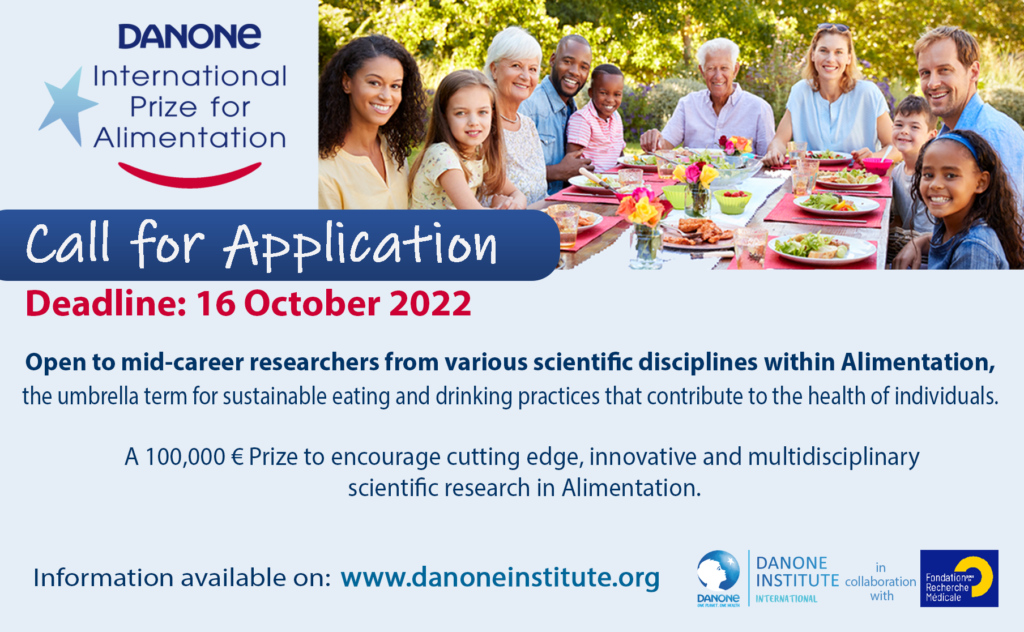May, 2022. The Danone Institute International opens its 3rd edition of the Danone International Prize for Alimentation (DIPA).
A prestigious Prize for Alimentation to mid-career researchers
The Danone International Prize for Alimentation (DIPA) rewards pioneering research that spans multiple disciplines and represents a major advance in Alimentation, the umbrella term for sustainable eating and drinking practices that contribute to the health of individuals, including food choice, purchase, preparation, cooking and meal organization, and their determinants.
The DIPA is awarded by the Danone Institute International* and the French research organization, Fondation pour la Recherche Médicale.
A call for application until October 2022
The Call for Application for the 3rd edition of DIPA is open until 16 October 2022.
Encourage innovative research in Alimentation
The purpose of the DIPA is to encourage and support cutting edge, innovative and multidisciplinary scientific research in Alimentation, the umbrella term for sustainable eating and drinking practices that contribute to the health of individuals, including food choice, purchase, preparation, cooking and meal organization, and their determinants. The award is intended to raise the profile of a mid-career researcher and accelerate his/her career, as well as help develop knowledge on the topic and inspire junior researchers.
The DIPA 100,000 Euros prize will recognize the work of a single researcher, or a representative of a research team, who is leading a pioneering and collaborative approach in Alimentation.
The Prize is open to research scientists from a variety of scientific disciplines within Alimentation, including behavioral science, sociology, anthropology, psychology, environmental science, economics, and cultural studies.
The DIPA aims to:
- advance understanding of Alimentation through cutting edge research;
- encourage and inspire pioneering advances that integrate lifestyle, cultural, socio-economic and environmental approaches into research on sustainable diets;
- boost collaboration between the different disciplines affecting nutrition, from anthropology to economics;
- support talented and highly motivated mid-career researchers whose work contributes to scientific excellence in the field of Alimentation
For further details on entries for the DIPA, please see the Rules and Regulations at www.danoneinstitute.org
* The Danone Institute International was established in 1991 as a not-for-profit organization aiming to promote human health through developing and disseminating knowledge about the links between food and health, and to highlight the importance of nutrition in health. The Yogurt in Nutrition Initiative for Sustainable and Balanced Diets is funded by the Danone Institute International and conducted in collaboration with the American Society for Nutrition.




